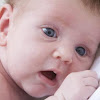How to Get Rid of Hiccups in Babies - For new parents may often feel confused and worried if your baby experiences things that are considered trivial for adults. Hiccup one of them. Then, how to deal with hiccups in babies? As with the behavior of other babies, hiccups on babies can look funny and adorable. Hiccups in babies are generally not dangerous, even one of the signs of a normal condition in the growth of a baby. Even so, it is better not to leave hiccups on the baby.
The diaphragm is a large sheet of muscle under the lungs, and together with the muscles between the ribs we can breathe. The contraction of these muscles can suck air into the lungs, and the entry of air quickly makes the epiglottis close. Epiglottis is a tissue flap in the throat that closes when we swallow to prevent food, drink, or saliva from being sucked into the lungs. This sudden closure of throat tissue causes hiccups.
Hiccups are indeed annoying for adults, as well as babies. Babies are usually not affected by hiccups in themselves. But still, baby hiccups are worrying for parents. Many, really, babies who can still fall asleep while hiccuping without being disturbed. Baby hiccups basically do not have certain bad effects or effects on the baby's breathing or health, and can still be said to be normal.
More Articles :
In newborns up to the age of one year, hiccups are very common. In fact, hiccups can be experienced by babies since they are still in the womb. As adults, hiccups in infants are due to interference with the diaphragm, the muscles that help the breathing process. In infants, hiccups are generally caused by eating too much or too fast, and swallowing a lot of air. In addition, hiccups can also be caused by changes in temperature in the stomach.Causes of Hiccups in Infants
Not only adults who experience hiccups, in fact babies can also experience hiccups at a very early age. Hiccups are basically caused by diaphragm contractions.The diaphragm is a large sheet of muscle under the lungs, and together with the muscles between the ribs we can breathe. The contraction of these muscles can suck air into the lungs, and the entry of air quickly makes the epiglottis close. Epiglottis is a tissue flap in the throat that closes when we swallow to prevent food, drink, or saliva from being sucked into the lungs. This sudden closure of throat tissue causes hiccups.
Hiccups are indeed annoying for adults, as well as babies. Babies are usually not affected by hiccups in themselves. But still, baby hiccups are worrying for parents. Many, really, babies who can still fall asleep while hiccuping without being disturbed. Baby hiccups basically do not have certain bad effects or effects on the baby's breathing or health, and can still be said to be normal.
How to Get Rid of Hiccups in Babies
1. Give breast milk and let the baby burp
Breastfeeding can be one way to overcome your baby's hiccups. Breastfeeding can help your child's diaphragm to relax and stop hiccups. After breastfeeding, you can let the baby burp to make room for air trapped in the baby's stomach. Well, the air is also the factor of baby hiccups.2. Adjust the position of the baby
After the process of breastfeeding and belching, it's time to adjust the baby's position. Hold and adjust the position of the baby in an upright standing condition, can while holding. You can also pat the baby's back gently. It aims to help the stomach gas to rise.3. Give something to suck
Give your child something to suck, such as a pacifier, pacifier, or mother's nipple. This method can be done to overcome baby hiccups. Mouth movements and trickery of straws in the baby's stomach are believed to stimulate belching and stop hiccups in babies.4. Take the baby to a warm place
To deal with baby hiccups, take and place the baby in a warm and humid place. Avoid air-conditioned rooms or rather cold temperatures. Remembering hiccups in babies can be caused by temperatures that turn cold.Tips on preventing hiccups in babies
- When you want to give breast milk or food to a baby, give it when the baby is calm, not crying, or even hungry. This is done to avoid air coming in together with food and avoiding the baby's flatulence.
- After breastfeeding, avoid activities such as carrying a baby with bouncing movements up and down.
- Keep your baby upright for 20 to 30 minutes after eating.
Advertisement


